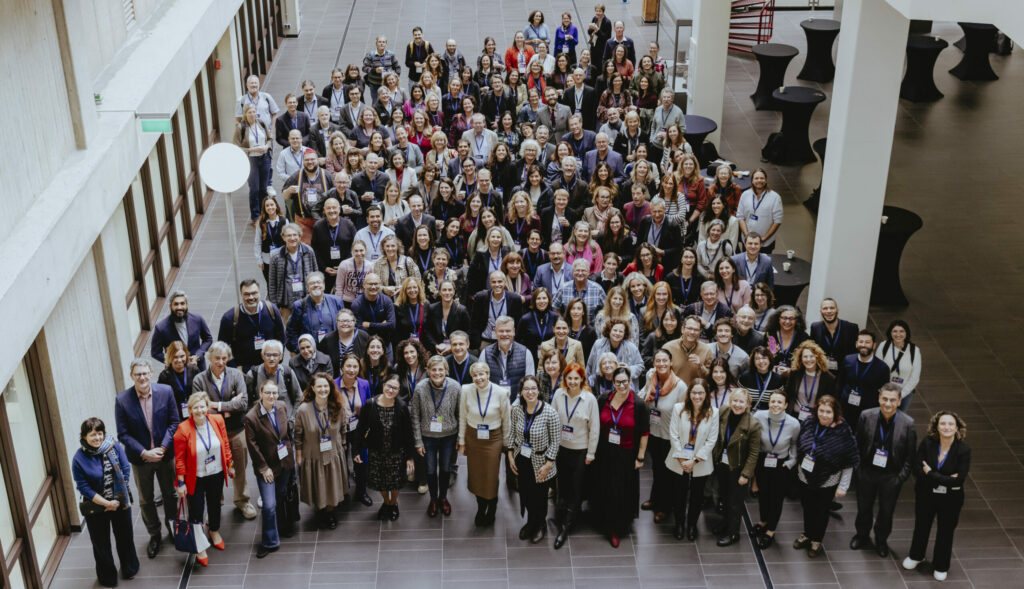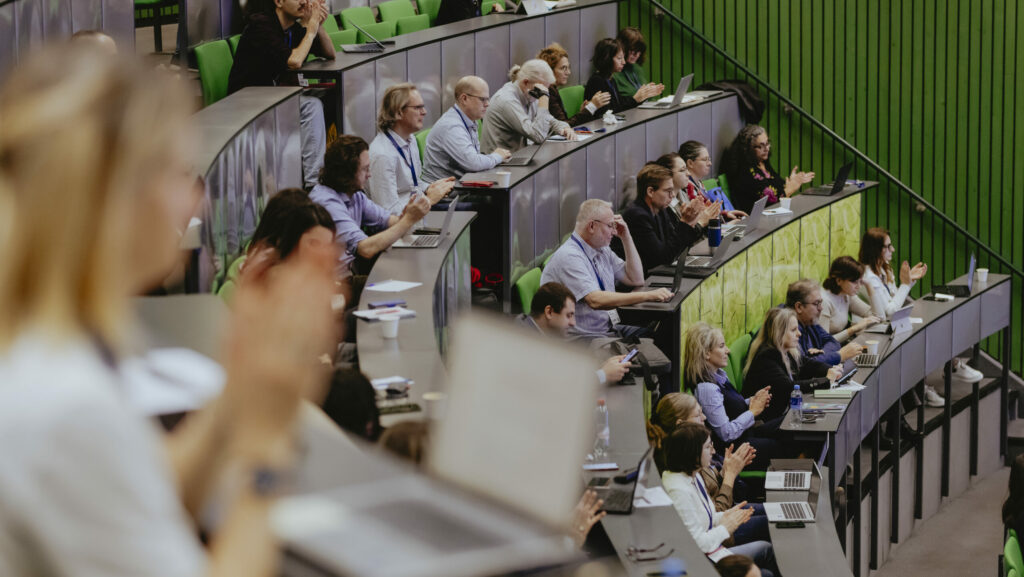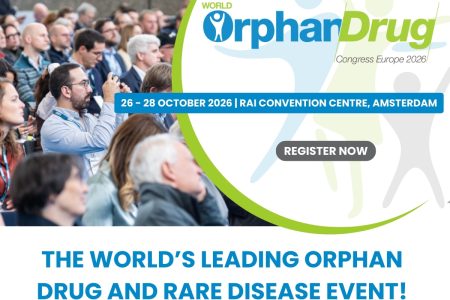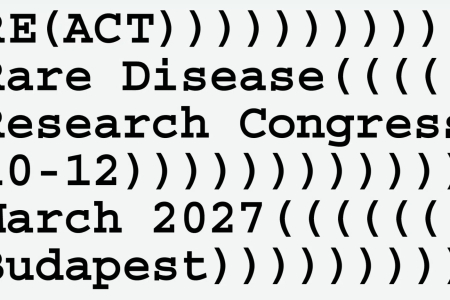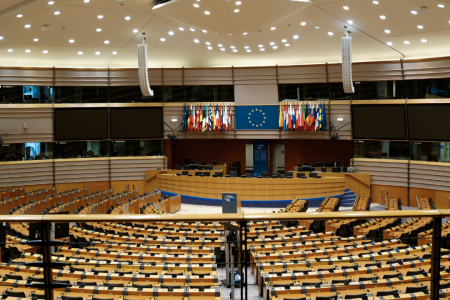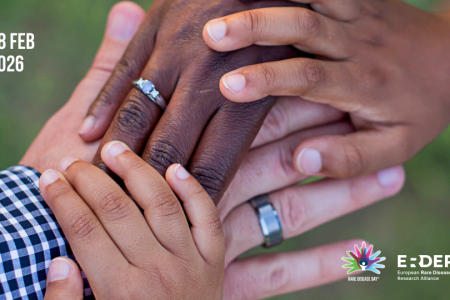ERDERA celebrated the Open Session at its 2nd general assembly meeting in Amsterdam today. This online event open to the entire rare disease community featured top experts in the field of neurology, neurometabolic diseases and patient advocacy.
Yvo Roos, Professor of Acute Neurology and dean of the medical faculty at the University of Amsterdam (AUMC), kicked the session by highligthing that strategic collaborations like ERDERA hold the potential to boost science in a way that aligns with the mission to help patients with rare diseases. He stressed that AUMC remains actively involved in twenty of the twenty-four European Reference Networks (ERNs), two of which are directly led by the institution.
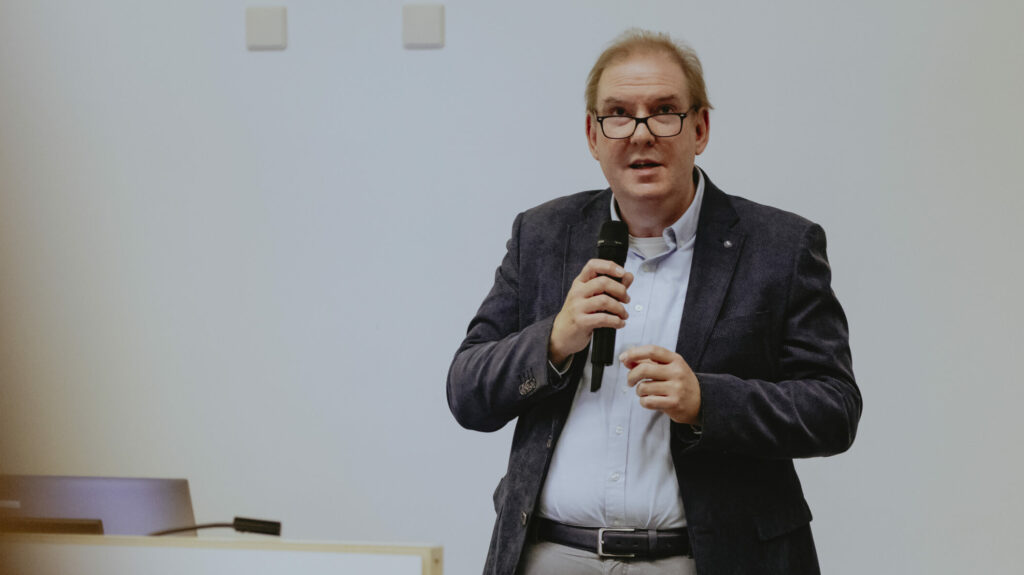
“At AUMC every day is a rare disease day, and our vision is to create cross-multistakeholder research that is really impactful”, he said. “By strengthening our connections and sharing insights, we are shaping the future and lives of our patients”.
Prof. Fanny Mochel joined remotely. A Professor of Genetics at Sorbonne University and Director of the Reference Centre for Neurometabolic Diseases at La Pitié Salpêtrière Hospital, she co-leads the MIND team at the Paris Brain Institute. Her keynote explored how physics and metabolism intersect in brain function and rare disease, and how multimodal imaging and metabolic readouts enable earlier diagnosis and monitoring. “We use imaging techniques for diagnostic purposes,” she said. “Early detection is essential to anticipate symptoms and to monitor treatments.”
She emphasised that metabolic, immune and biophysical processes shape the brain’s dynamic architecture, so interpretation must integrate molecular pathways with tissue level properties. Through case examples on Huntington’s disease and leukodystrophies, she showed how metabolic interventions can complement care.
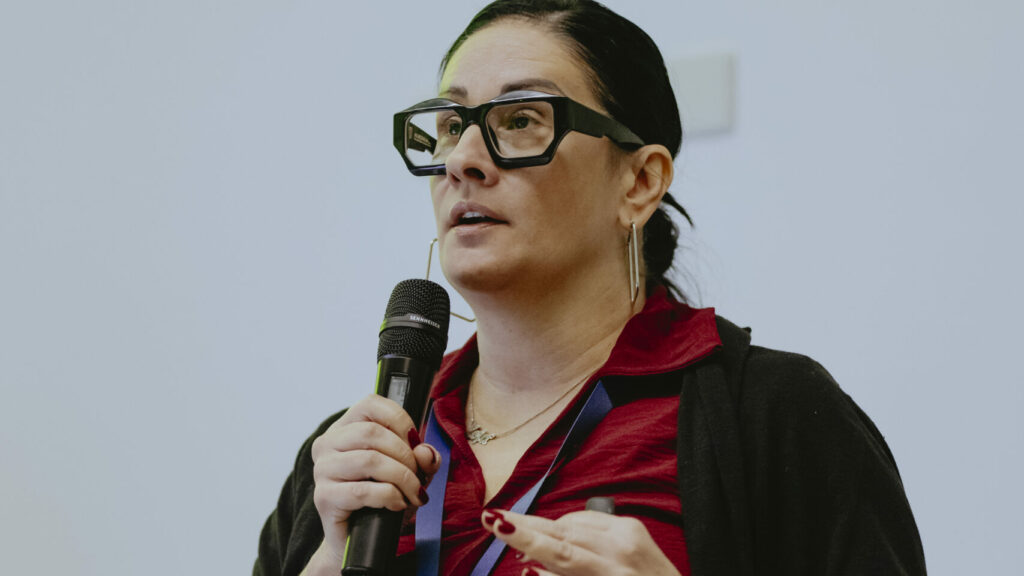
Giving the rare disease community a voice
Then it was time for the patient perspective, reflecting ERDERA’s patient‑centred approach: Bojana Mirosavljević, a rare disease advocate from Novi Sad and founder of the Život–Life Association, led an international campaign for support and visibility for rare disease patients and championed policy changes in Serbia, paving the way for earlier diagnosis and improved care.
In her keynote on how advocacy can shape national health policy, Bojana traced a fifteen‑year journey from her family’s response to eventual diagnosis of her daughter Zoja with Batten disease to the Serbian Parliament’s unanimous adoption of Zoja’s Law in 2015. This law mandates sending samples abroad if no diagnosis is reached within 6 months, and enables prenatal, carrier and pre‑implantation genetic testing for affected families across Serbia.
She set this progress against a stark backdrop: families often see at least eight specialists and wait 5 to 8 years for a diagnosis, amid initial gaps such as an under‑used registry, limited therapy access and weak protections for parents. Through collective action, her community expanded the list of recognised medicines, launched the first Serbian‑language rare disease magazine, built cross‑border collaboration and a regional database, and helped equip patients to engage as partners in research and clinical trials. Her session ended with a compelling soon-to-be-released documentary on her diagnosis odyssey and relentless advocacy efforts.
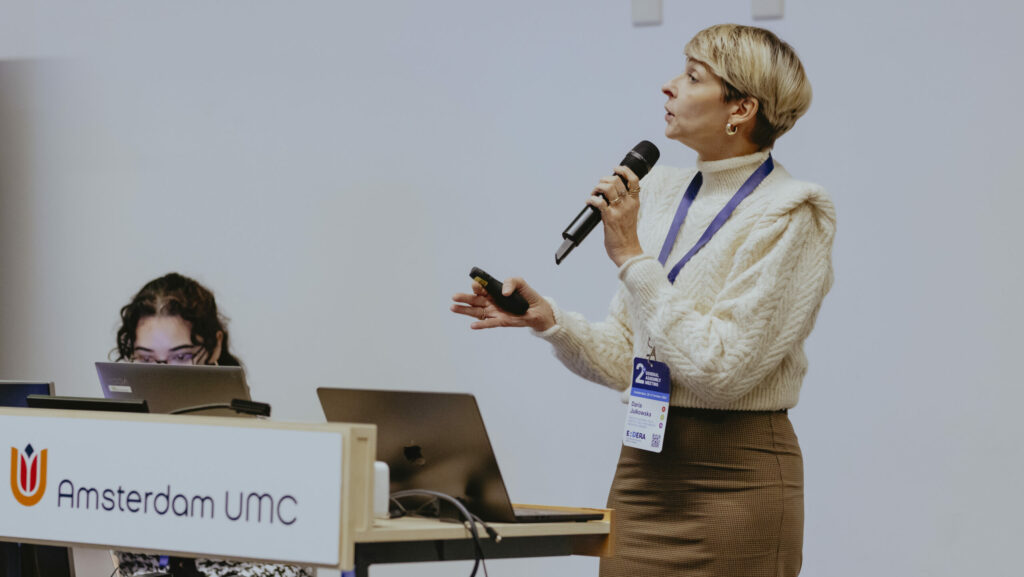
ERDERA outlining its second year
ERDERA scientific coordinator, Daria Julkowska (INSERM), wrapped up the session with an in-depth overview of ERDERA’s first year and the milestones set for year two. Alongside the deployment of key partnership features, including the Public-Private Partnerships Accelerator, ERDERA delivered a significant boost to clinical research through an enhanced diagnostics pipeline, strengthened funding mechanisms and expanded training schemes, with regulatory aspects integrated across the research pathway.
On funding and support, the first Joint Transnational Call successfully launched in December 2024 with funders from 32 countries, paired with tailored support to enhance research and amplify its impact. The second call is scheduled for 10 December.
The Networking Support Scheme, launched in May this year and continuously open throughout the partnership’s timeline, is another funding scheme that focuses on collaborative events around rare diseases as well as rare cancers.
ERDERA’s Support Services advanced through the Data Hub, that helps develop new knowledge bases and ontologies, including updated PROMs and prenatal screening resources. The Expertise Service Hub, offering mentoring and consultancy for projects, including regulatory guidance, and methodological support for multivariate, hierarchical, incomplete and federated data, also saw progress.
Within the Clinical Research Network, partners laid the foundations of a robust EU diagnostic pipeline and assembled 10 000 genomic datasets for reanalysis, with innovations to accelerate diagnosis and empower underrepresented countries.
Outcome research progressed with practical workflows to transform health records into research ready real-world data, and a regulatory grade validation roadmap for patient centred outcomes now piloted.
To speed access to therapies, ERDERA defined a framework for prioritising rare diseases for advanced therapy medicinal products, advanced “n-of- few” trial concept (trials designed for a very small group of patients, typically those with ultra-rare genetic conditions), and is developing a matching tool linking disease categories to ATMP platforms, aligned with ethical and regulatory expectations. Training and education reached 2 400 stakeholders via MOOCs sustained from EJPRD and tailored programmes, including paediatrics and the EURORDIS Open Academy.
National alignment strengthened through the Governing Board and National Mirror Groups (18 established, 13 in progress, targeting 37 by the end of year 2), with a two-way dialogue also involving the National Advisory Board. Strategic alliances were mapped and activated with JARDIN (including a joint NMG), the European Genomic Data Infrastructure, the Global Alliance for Genomics & Health, and Screen4Care.
Looking ahead, ERDERA is preparing the 2026 Joint Transnational Call linked to the diagnostic pipeline, launching on 10 December this year. A one off Clinical Trials Call is currently planned for 2026 with 30 million euro from the European Commission plus potential national co-funding (final decisions expected by end 2027. 2026 will also see the official launch of the Public-Private Collaboration Accelerator, with a call for submissions scheduled for January 2026.
